03:42
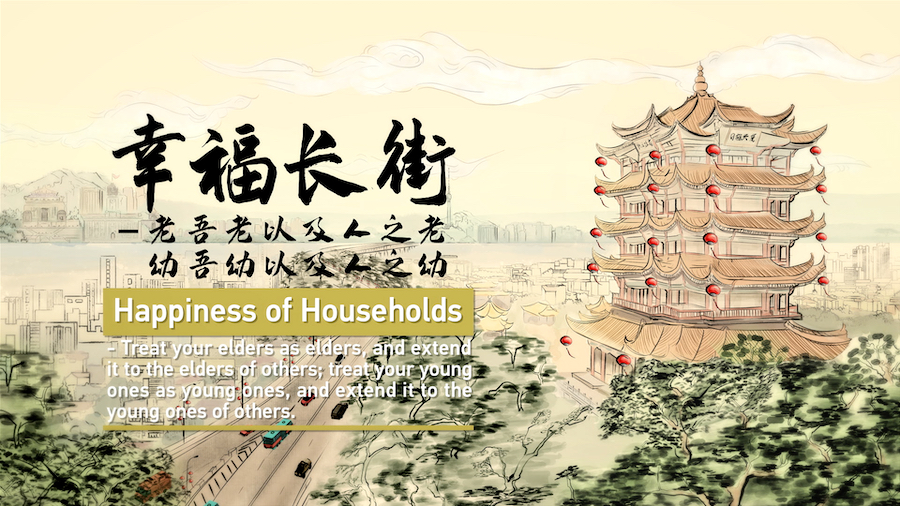
A photo of an elderly COVID-19 patient in a hospital bed, watching the evening glow with his doctor, in Wuhan, central China's Hubei Province, spread rapidly online in March 2020.
On their way from an examination room to the ward, doctor Liu Kai and 87-year-old Wang Xin stopped to gaze at the view. The kindness behind the doctor's care for the elderly sparked over a million discussions on social media.
More than 2,000 years ago, "Mencius," one of the Confucian classics, first told people to "treat your elders as elders, and extend it to the elders of others; treat your young ones as young ones, and extend it to the young ones of others." The concept remains deeply rooted in Chinese culture to this day.
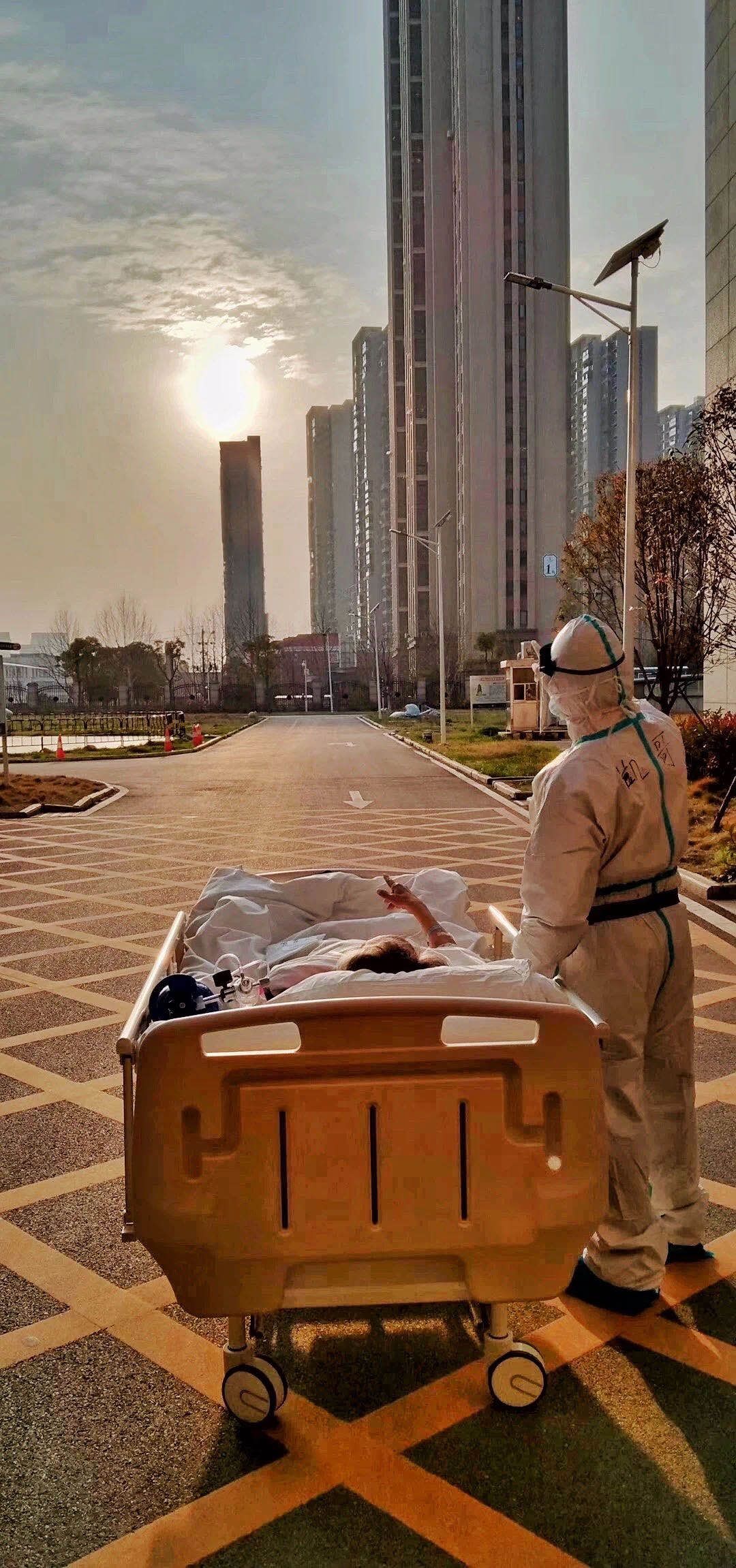
Doctor Liu Kai and 87-year-old COVID-19 patient Wang Xin stop to watch the evening glow at a hospital in Wuhan, central China's Hubei Province, March 5, 2020. /Gan Junchao
Doctor Liu Kai and 87-year-old COVID-19 patient Wang Xin stop to watch the evening glow at a hospital in Wuhan, central China's Hubei Province, March 5, 2020. /Gan Junchao
In the battle against COVID-19, China has cherished all lives and not given up on one patient.
According to official statistics, 70 percent of the more than 2,500 COVID-19 patients aged over 80 in Wuhan have recovered. Among those, seven are aged over 100 and the oldest is 108.
Aided by the devotion of medical staff, Wuhan cleared all severe COVID-19 cases on April 24. That day a 90-year-old patient tested negative after being hospitalized for nearly three months.
As Liu Kai's medical team from Shanghai prepared to go home after completing their aid mission in Wuhan, Wang Xin was about to recover. The retired music professor played the violin for the team to express his appreciation.
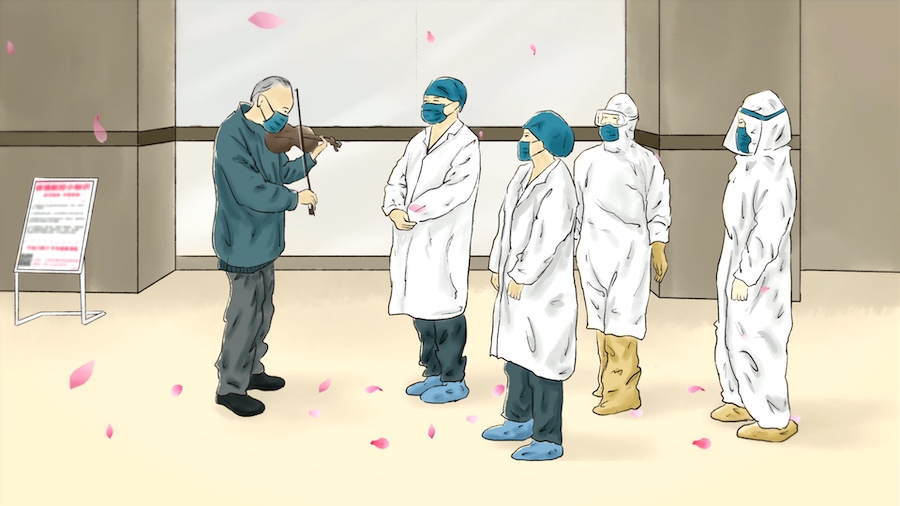
Retired music professor Wang Xin plays the violin for doctor Liu Kai and his team to express his appreciation. /CGTN
Retired music professor Wang Xin plays the violin for doctor Liu Kai and his team to express his appreciation. /CGTN
WHO Director-General Tedros Adhanom Ghebreyesus once wrote on social media, "Health workers are bearing the biggest burden in the COVID-19 outbreak." In the post, he shared a video story: In east China's Anhui Province, two kids were left unattended after their parents contracted the coronavirus and were hospitalized. Six nurses at an isolation facility offered to serve as stand-in parents, feeding and bathing the children and washing their clothes.
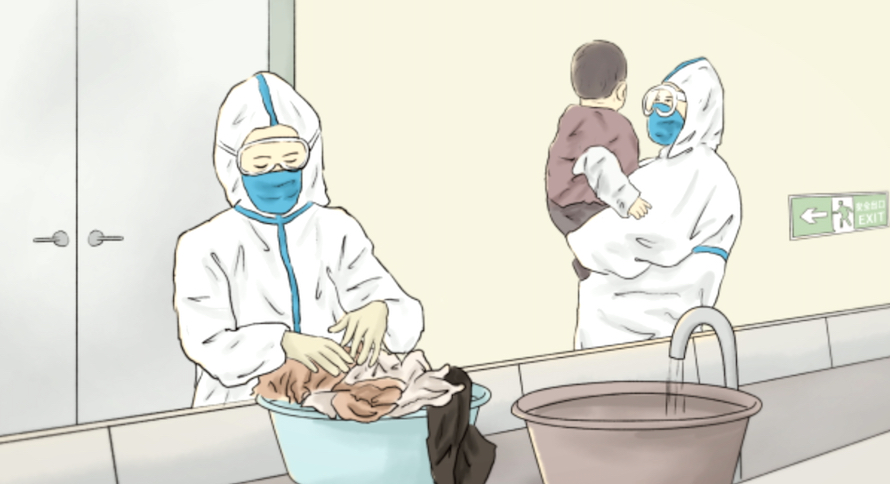
Six nurses offered to serve as stand-in parents, feeding and bathing unattended children and washing their clothes at an isolation facility in east China's Anhui Province. /CGTN
Six nurses offered to serve as stand-in parents, feeding and bathing unattended children and washing their clothes at an isolation facility in east China's Anhui Province. /CGTN
Solidarity has helped China fight the virus without giving up on anyone. But on the other side of the world, there have been heartbreaking stories.
"Alexa, help me."
"I am in pain. I have to find a way to relieve it."
"Can you help me cope with pain?" A 66-year-old nursing home resident, who tested positive for coronavirus, asked for help from virtual assist Alexa to cope with her pain at least 40 times in the days before she died in Michigan.
According to the New York Times, some states forced nursing homes to accept COVID-19 patients from hospitals. In such shared facilities, elderly residents and workers live in confined environments, facing a higher risk of infection.
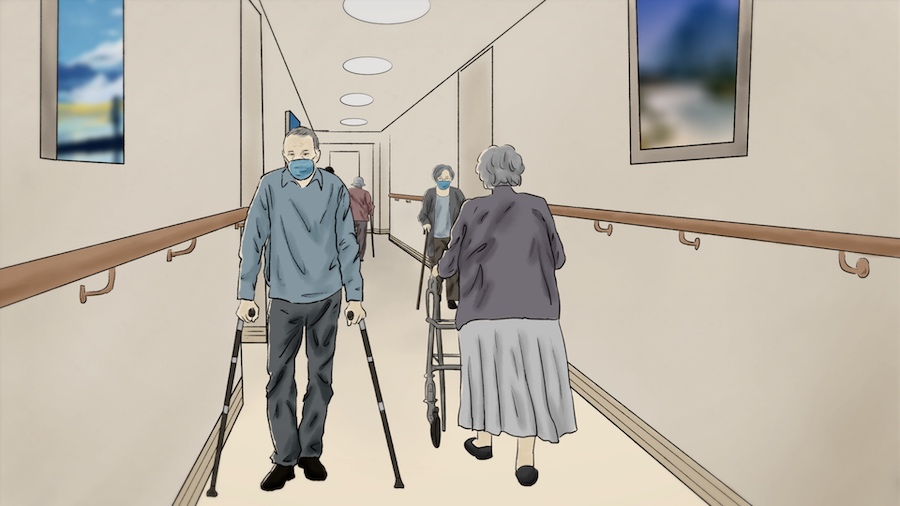
An investigative report in May revealed that at least 28,100 residents and staff have died from the coronavirus at nursing homes and other long-term care facilities for older adults in the U.S. /CGTN
An investigative report in May revealed that at least 28,100 residents and staff have died from the coronavirus at nursing homes and other long-term care facilities for older adults in the U.S. /CGTN
An investigative report in May revealed that at least 28,100 residents and staff have died from the coronavirus at nursing homes and other long-term care facilities for older adults in the U.S., accounting for one-third of all coronavirus deaths in the country.
In some European countries, the elderly have even faced life or death choices, with healthcare systems on the brink of collapse amid a surge of COVID-19 cases.
In Italy, octogenarians sometimes could not get ICU treatment. In Spain, some aged over 65 had their respirators removed. In the UK, a doctor reportedly asked some patients to agree that emergency services would not be called if their conditions worsened due to coronavirus.
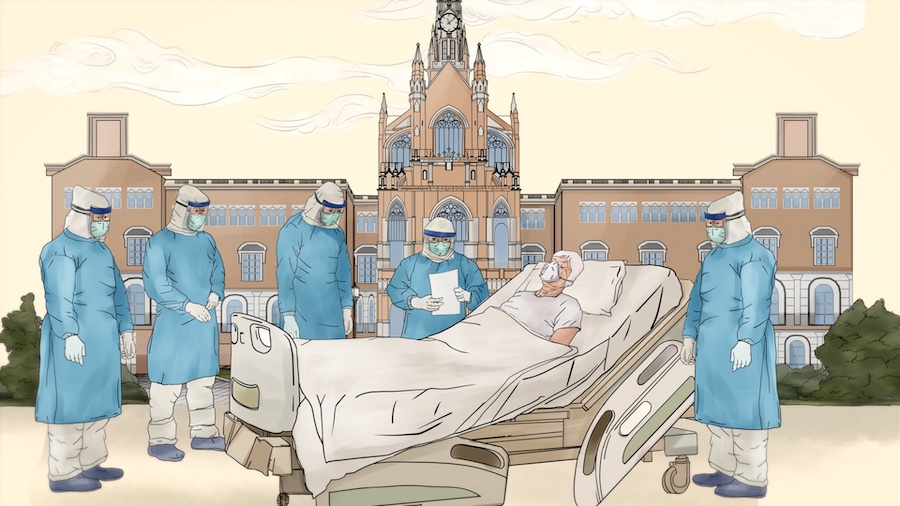
In some European countries, the elderly have faced life or death choices, with healthcare systems on the brink of collapse amid a surge of COVID-19 cases. /CGTN
In some European countries, the elderly have faced life or death choices, with healthcare systems on the brink of collapse amid a surge of COVID-19 cases. /CGTN
Maybe what Cui Tiankai, the Chinese ambassador to the U.S., said about China's approach to fighting the coronavirus is the reason why the country has drawn envy and admiration from people around the world. "First of all, people's well-being, their health, their safety, their lives, are the most important thing for us. So we'll do our best to protect people's well-being in a sense at whatever cost."
"Making people's lives and health the priority" is not only the basic rules China has kept during the pandemic, but it is the one that reflects the deeply ingrained tradition of respecting the elderly and caring for children.
Scriptwriter: Wu Yan
Voice actor: Oscar Margain
Editor: Wu Yan
Copy editor: John Goodrich
Chief editor: Wang Dewei
Executive producer: Zhang Xiaohe
Producer: Si Nan
Supervisor: Zhang Shilei